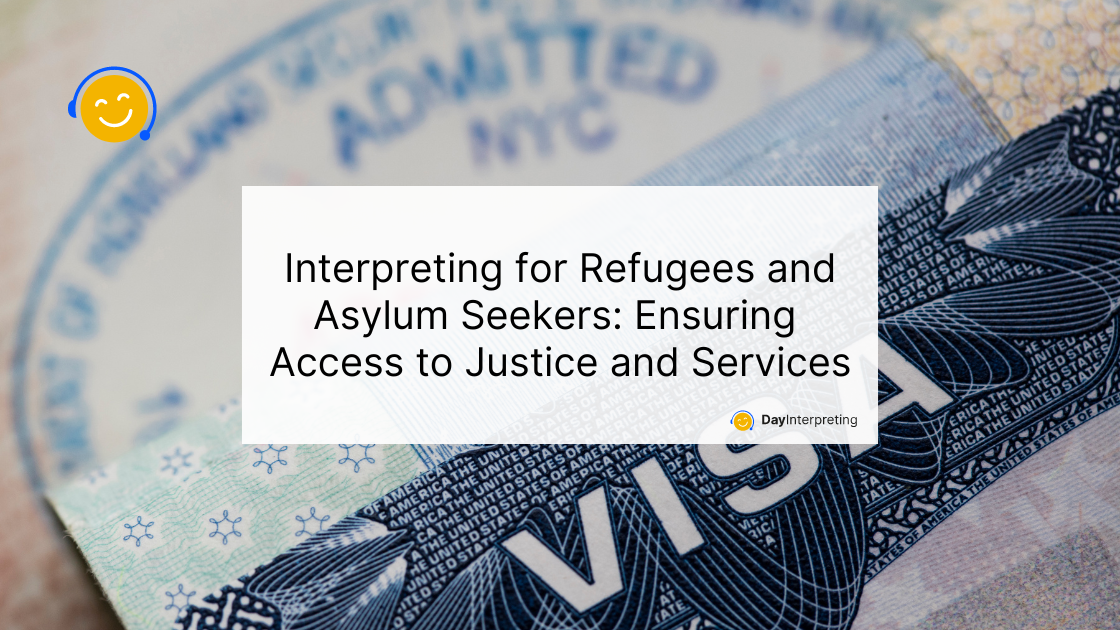In the vibrant tapestry of our global community, the plight of refugees and asylum seekers stands as a testament to resilience and hope amid adversity. As they navigate unfamiliar territories and legal systems, the role of interpreters becomes paramount in bridging language barriers and ensuring access to justice and essential services. Join us on a journey to explore the vital importance of interpreting for refugees and asylum seekers, and the challenges and solutions that shape this critical aspect of humanitarian support.
Understanding the Need
Imagine finding yourself in a foreign land, seeking refuge from conflict, persecution, or other life-threatening circumstances. In such moments of vulnerability, clear communication can be a lifeline. Refugees and asylum seekers often arrive with limited or no knowledge of the local language and legal systems, making it challenging to express their needs, rights, and stories. This is where interpreters step in as linguistic allies, facilitating communication and understanding across cultural divides.
The Role of Interpreters
Interpreters for refugees and asylum seekers play a multifaceted role that goes beyond mere language translation. They act as cultural brokers, helping individuals navigate complex legal procedures, medical consultations, educational settings, and social services. Their ability to convey nuances of language, tone, and emotion ensures that the message is accurately and empathetically conveyed, fostering trust and rapport between parties.
Challenges and Solutions
One of the primary challenges faced in interpreting for refugees and asylum seekers is the need for specialized vocabulary and cultural sensitivity. Legal terminology, medical jargon, and trauma-informed communication require interpreters to have a deep understanding of context and nuance. Training programs, ongoing education, and access to resources in multiple languages are crucial in addressing these challenges and ensuring high-quality interpretation services.
Ensuring Access to Justice
Access to justice is a fundamental human right, yet it can be elusive for many refugees and asylum seekers due to language barriers. Interpreters serve as advocates for linguistic equity, empowering individuals to participate fully in legal proceedings, asylum interviews, and administrative processes. Their presence not only upholds the principles of fairness and due process but also strengthens the integrity of the legal system.
Beyond Language: Building Trust and Empathy
Interpreting for refugees and asylum seekers is not just about words; it’s about building trust, empathy, and understanding. Interpreters often navigate sensitive and emotionally charged conversations, requiring a delicate balance of professionalism and compassion. Their ability to convey not just the meaning but also the intent and emotions behind the message fosters meaningful connections and facilitates effective communication.
The Future of Interpreting for Refugees and Asylum Seekers
As we look ahead, the importance of interpreting for refugees and asylum seekers will only continue to grow. Advancements in technology, such as remote interpretation platforms and AI-assisted translation tools, offer new possibilities for improving accessibility and efficiency. However, it’s crucial to ensure that technological solutions complement rather than replace the human touch and cultural competence that interpreters bring to the table.
In the intricate web of human experience, interpreting for refugees and asylum seekers emerges as a beacon of hope and understanding. Through their dedication, expertise, and unwavering commitment to bridging linguistic divides, interpreters play a vital role in ensuring that every voice is heard and every story is understood. As we strive for a more inclusive and compassionate world, let us recognize and celebrate the invaluable contributions of interpreters in safeguarding the rights and dignity of those in search of refuge and justice.





0 Comments